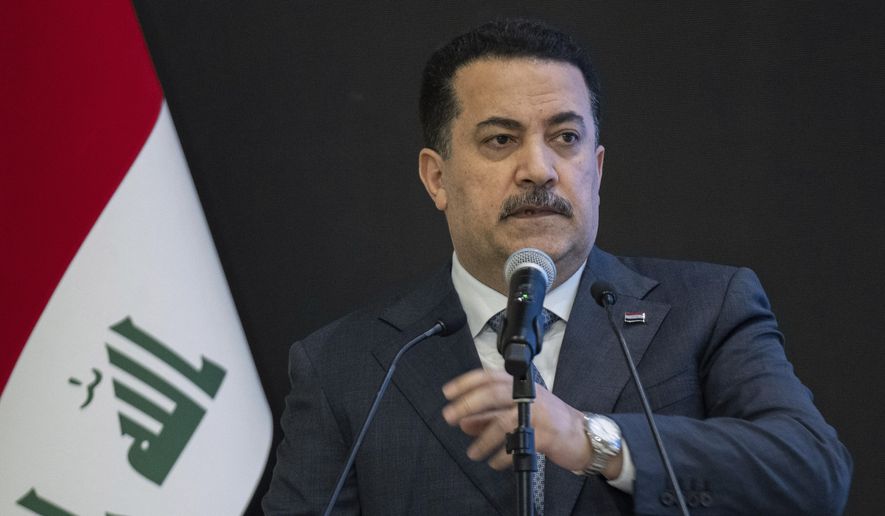OPINION:
As the world gathered for the United Nations General Assembly in New York City, many of the news reports focused on hopes to end the conflicts in Ukraine and Gaza. While the ravages of war clearly warrant attention, it is important that good news from around the globe not be lost in the shuffle.
Secretary of State Marco Rubio issued a statement midweek congratulating Iraq on reaching an agreement with the Kurdistan Regional Government to reopen the Iraq-Turkey pipeline, an essential boost to the region’s economy and another step in encouraging American business in the area.
Mr. Rubio’s announcement read as follows:
“We welcome the announcement that the Government of Iraq has reached an agreement with the Kurdistan Regional Government and international companies to reopen the Iraq-Turkey pipeline — an agreement facilitated by the United States that will deliver tangible benefits to both Americans and Iraqis.
“We commend the decisive efforts of Iraqi Prime Minister Mohammed Shia al-Sudani and senior officials in the Iraqi government, as well as Kurdistan Regional Government Prime Minister Masrour Barzani and senior officials in the KRG, in achieving this progress. This agreement will strengthen the mutually beneficial economic partnership between the United States and Iraq, foster a more stable investment climate across Iraq for American companies, enhance regional energy security and reinforce Iraq’s sovereignty.”
Mr. Sudani was equally enthusiastic, proclaiming on his X account, “Today we reached a historic agreement under which the Federal Ministry of Oil will receive crude oil produced from the fields in the Kurdistan Region of Iraq and export it through the Iraq-Turkiye pipeline. This ensures fair distribution of wealth, diversification of export outlets, and encouragement of investment. An achievement 18 years in the making.”
What makes this particularly significant is that the Kirkuk-Ceyhan pipeline has been closed for two and a half years. In March 2023, the International Chamber of Commerce ordered Turkey to pay Iraq $1.5 billion in damages. The reason? The ICC concluded that Kurdish regional authorities had conducted unauthorized exports. Turkey disagreed. When they appealed the decision, the pipeline was shut down.
Before the exports were suspended, Iraq was shipping nearly a quarter million barrels of oil per day through the pipeline. Restarting that volume will have enormous economic benefits for Iraq, Kurdistan and Turkey. It will also continue to build and demonstrate the regional stability that western investors crave.
Mr. Sudani himself appears to be on a bit of a roll. It was just a few weeks ago that he announced one of the most significant Iraq oil deals with a U.S. company in years. The agreement between Chevron and Iraq allows the company to develop multiple exploration blocks and expand upstream production.
During a late August signing ceremony with top brass from Chevron, Mr. Sudani was very complimentary of the oil giant. “Chevron brings more than capital — it brings expertise in technology, environmental standards and job creation.”
There has never been any doubt about Iraq’s oil production capacity, but decades of conflict and questions of stability have sometimes limited its economic potential. All of this recent activity indicates something has clearly shifted. The Chevron deal is a significant economic plus, but it is far more than that. It demonstrates the West believes Iraq has established the necessary stability to foster growth and opportunity.
It also signals a change in Iraq’s approach. While Iraq and America have shared security concerns for many years, this shift shows that the Iraqi government is focused on making sure U.S. companies feel comfortable in business partnerships. The goal from both sides is to expand those partnerships well beyond oil, to include infrastructure, energy development and financial services.
The good news may not be over yet, either. While no official announcement has been made, back channels indicate there may be word from the U.S. Trade and Development Agency and the Department of Energy before 2025 is over, regarding a large, new U.S.-Iraq investment package.
• Tim Constantine is the host of “The Capitol Hill Show.”




Please read our comment policy before commenting.